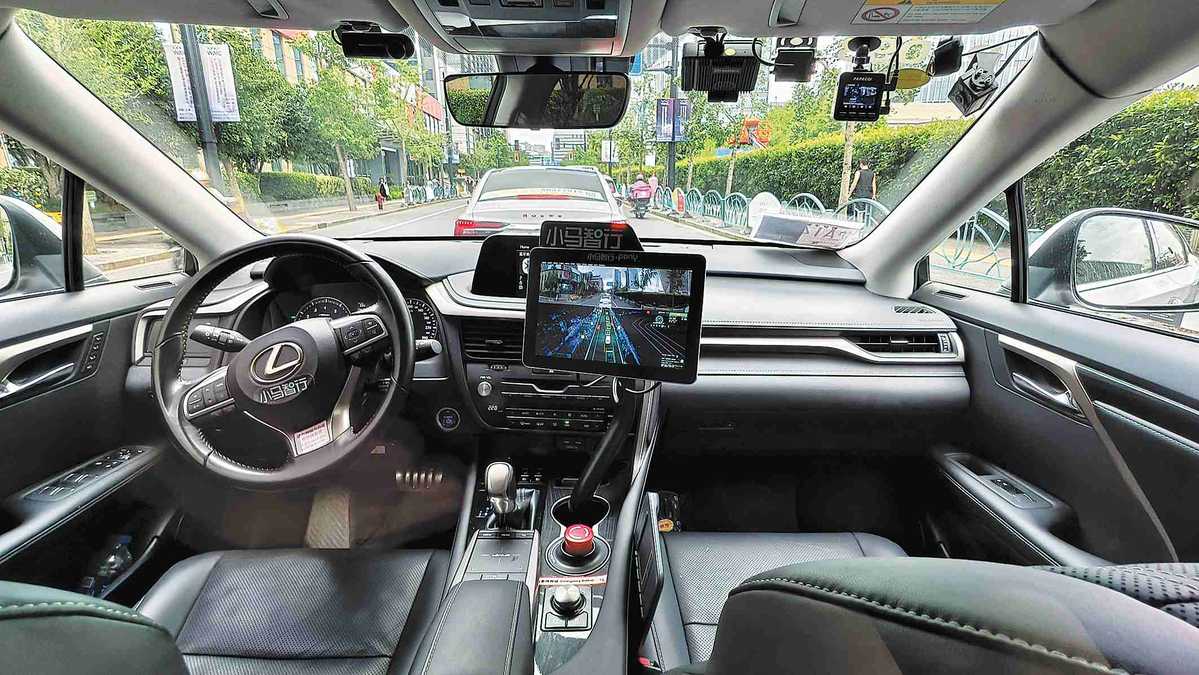Officials announce policies to advance intelligent transportation and digital innovation

China is reinforcing its strategic drive into the smart connected-vehicle industry, with senior officials signaling a new phase of policy acceleration as global automakers and Chinese tech companies work to define the future of mobility.
Intelligent and connected vehicles have become a "strategic direction" for the transformation of the automotive sector, said Xin Guobin, vice-minister of industry and information technology, at the 2025 World Intelligent Connected Vehicles Conference.
The three-day event, which concluded on Saturday, was organized by the Ministry of Industry and Information Technology, the Ministry of Transport, and the Beijing municipal government.
READ MORE: Chinese suppliers pursuing advanced auto intelligence
Xin announced that MIIT will formulate a new development plan for the upcoming 15th Five-Year Plan period (2026-30), covering intelligent connected and new energy vehicles.
"We will support technological innovation, promote the deep integration of artificial intelligence and the automotive industry, and accelerate breakthroughs in next-generation architectures and high-performance chips," Xin said. "We will also push forward standard-setting for combined driver-assist and autonomous driving systems, improve vehicle production access, and regulate market competition."
China has already built a comprehensive ecosystem spanning smart cockpits, autonomous driving, and cloud connectivity, with more than 60 percent of new passenger cars now equipped with combined driver-assist functions.
Pilot projects for vehicle-road-cloud integration are currently underway in around 20 cities, featuring more than 35,000 kilometers of test roads and over 11,000 roadside intelligent units.
The Ministry of Transport is also preparing implementation guidelines under its "AI + Transport" initiative, emphasizing that smart connected vehicles and autonomous-driving technologies will play a central role in building a scalable and replicable intelligent transport network.
Minister Liu Wei said the future lies in an "intelligent, multilayered transport system driven by technological innovation", underscoring that progress depends on cultivating locally developed "new quality productive forces".
The policy push goes beyond innovation and deployment — it also focuses on regulatory refinement and safety assurance.
Xin said MIIT will accelerate the drafting of standards for combined driver-assist and autonomous vehicles, optimize production licensing procedures, and promote fair competition.
China's urgency on this front follows growing safety concerns.
According to the State Administration for Market Regulation, in 2024 alone, 2.56 million vehicles were recalled due to driver-assist system issues, accounting for 23 percent of total recalls that year.
A draft notice jointly prepared by the SAMR and the MIIT aims to strengthen recall consistency management for smart NEVs, while curbing exaggerated marketing and unfair competition practices.
The industrial developments are being closely watched by global automakers and technology companies.
Jochen Goller, a member of BMW Group's board of management, said the transition toward intelligence, electrification and decarbonization is reshaping the global auto industry and creating new opportunities for international collaboration in China.
He said China is not only BMW's largest single market worldwide, but also a frontier for technological innovation and a key driving force for industrial transformation.
Goller said BMW will continue to pursue a dual-driven strategy of independent innovation and open collaboration, integrating more deeply into China's innovation ecosystem.
Li Shufu, chairman of Geely Holding Group, said that the industry has moved beyond conceptual exploration into an era of real technological breakthroughs and practical application.
"Software now defines the automobile," he said, adding that AI has become the new engine of growth, and Geely is advancing the concept of ubiquitous AI across its value chain — from architecture and powertrain to the cockpit.
Zhu Huarong, chairman of China Changan Automobile Group, described intelligent connected vehicles as the "true future of mobility", predicting that next-generation digital vehicles will evolve into fully automated automotive robots.
Cao Xudong, CEO of Chinese autonomous driving startup Momenta, said the industry has entered a phase of reflection and regulatory consolidation after years of rapid expansion.
ALSO READ: Expo highlights smart auto ecosystem
He sees the establishment of mandatory national standards as a milestone for achieving high-quality, mature development.
"In the future, assisted-driving systems will handle the vast majority of driving mileage — up to L3 and L4 levels that enable hands-off, eyes-off operation," Cao said, predicting that such capabilities could spread rapidly after 2030.
William Li, founder of Chinese NEV maker Nio, argued that the mission of autonomous driving should focus on safety first.
"The priority should be to reduce accidents. Only on that foundation can we achieve the goal of freeing human attention," he said.
Contact the writers at lifusheng@chinadaily.com.cn


